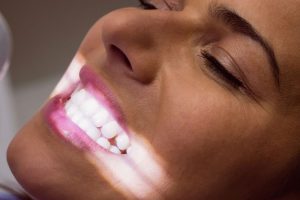Has it been advised to you that you need a dental crown, and are you wondering what the process is like? Many people who are visiting the dentist in South Edmonton for the first time, after being informed about the treatment, inquire about the procedure, the level of comfort, and the benefits of crowns. Knowing the process can provide a great sense of relief and also help to dispel the ‘terrible ordeal’ feeling of stress.
What Is a Dental Crown?
A dental crown is a tailored “cap” that is fitted on a tooth to bring back its original strength, form, and look. It may be suggested for a tooth that has been compromised by decay, cracking, or post-root canal treatment. The dental crown can be made from porcelain, ceramic, or metal alloys, which is decided based on the patient’s requirements.
How Does the Crown Get Made and Placed?
Essentially, the dental treatment will require two visits. At the initial appointment, your dentist gets the tooth ready, takes impressions, and fits a temporary crown. The second visit is when the adjusted and final crown is put in place. To get the optimal outcome, it is really important to have a trustworthy dental clinic near you in South Edmonton; you will benefit from someone who is experienced and meticulous.
What to Expect from a Crown Procedure?
On top of everything, the dentist will explain to you the reasons for a tooth crown and will also discuss with you the composition of the material.
- Tooth Preparation: The decayed part of the tooth is reshaped to allow the crown to fit.
- Impressions: To make a custom crown for you, a digital scan or a traditional mould is taken.
- Temporary Crown: A temporary crown protects your tooth until the permanent one is produced.
- The Final Stage: After gluing and checking for comfort and bite, the crown is removed.
Do Dental Crowns Hurt?
They numb the area and only then perform the procedure, so no pain should be felt while they prepare the tooth. Some minor discomfort or sensitivity is considered normal after the visit, but it generally disappears in a couple of days.
What Are the Benefits of a Dental Crown?
Receiving dental crowns in South Edmonton is good for the patient in the following ways:
- The ability to chew and bite is restored.
- Safeguards teeth that have been weakened or fractured
- Enhances the dental issue of both misalignment and discoloration
- If handled correctly, the dental crown can provide a durable service for a very long time
How Long Do Dental Crowns Last?
A good 10-15 years or even more is the period of time that dental crowns usually last. The duration of their existence is determined by the manner of taking care of oral hygiene, keeping away from activities such as grinding the teeth, and getting regular dental checkups.
Restore Strength and Beauty to Your Smile Today!
Are you thinking if a crown would work for your tooth to get rid of? Put your trust in the compassionate team at Whitemud Dental Centre; make an appointment there, and let them be your guide in every step of regaining your smile and self-esteem.
FAQs
Are dental crowns suitable for kids?
Usually, kids get dental crowns once their milk teeth are broken by caries. Nevertheless, the procedures and equipment used might vary.
Can a crown only be used for cosmetic relief?
One can use a crown for cosmetic reasons to improve the shape of the tooth or to eliminate the gaps between teeth.
What if a crown falls out?
In case a crown becomes loose or falls off, store it in a safe place and get in touch with your dentist as soon as possible to get it re-cemented or replaced.
Is it so that crowns are different from veneers?
Correct. Crowns are fully covering the tooth, while veneers are only attaching to the front surface of the tooth, which makes crowns more suitable for weak or seriously damaged teeth.








